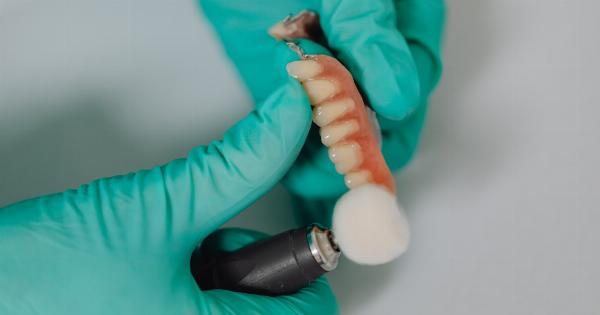Oral medications form an integral part of healthcare, effectively treating various diseases and conditions.
While most medications are designed to help, some have been found to cause unintended side effects, including damage to teeth and dental implants. These notorious oral medications pose a unique concern for dental health and should be approached with caution. In this article, we discuss ten such medications that have been linked to dental issues and explore ways to mitigate their potential harm.
1. Bisphosphonates
Bisphosphonates are commonly prescribed for osteoporosis and bone-related diseases. However, long-term use of these medications has been associated with a rare but severe condition known as bisphosphonate-related osteonecrosis of the jaw (BRONJ).
BRONJ leads to the death of the jawbone, causing pain, swelling, and an increased risk of dental implant failure.
2. Antidepressants
Some antidepressants, such as selective serotonin reuptake inhibitors (SSRIs), have been linked to bruxism – a condition where individuals grind or clench their teeth unconsciously, often during sleep.
Bruxism can result in tooth wear, fractures, and compromised dental implants. Dentists may recommend protective splints or mouthguards to mitigate the damage.
3. Antihistamines
Antihistamines are widely used to manage allergies, but they can cause dry mouth as a side effect. Reduced saliva flow can result in a higher risk of tooth decay, gum disease, and compromised dental implants.
Maintaining good oral hygiene and drinking plenty of water can help alleviate dry mouth symptoms.
4. Anticonvulsants
Anticonvulsant medications, often prescribed to control seizures, have been associated with gum overgrowth or enlargement.
This condition, known as gingival hyperplasia, can lead to difficulties in maintaining proper oral hygiene, increase the risk of tooth decay, and cause discomfort around dental implants. Regular dental check-ups and professional cleanings are crucial for individuals taking anticonvulsants.
5. Oral Contraceptives
Hormonal changes brought on by oral contraceptives can contribute to gingivitis, a mild form of gum disease, in some individuals. Gingivitis can cause gum inflammation, bleeding, and bad breath.
Adequate oral hygiene practices and regular dental cleanings are necessary to prevent the progression of gingivitis to more severe gum diseases that can compromise dental implants.
6. Immunosuppressants
Immunosuppressant drugs used to manage autoimmune diseases or after organ transplantation may increase the risk of developing oral infections, such as oral candidiasis (oral thrush).
Maintaining good oral hygiene and regular dental visits are crucial for preventing and managing oral infections that may impact the success of dental implants.
7. Antihypertensives
Some antihypertensive medications used to manage high blood pressure, such as calcium channel blockers, have been associated with gingival enlargement.
Similar to anticonvulsants, gingival hyperplasia increases the risk of oral hygiene difficulties, tooth decay, and discomfort around dental implants. Maintaining meticulous oral hygiene practices, including regular professional cleanings, is essential.
8. Chemotherapy Drugs
Chemotherapy drugs, vital in cancer treatment, can cause a range of oral health issues. The side effects include mouth sores, increased risk of infections, dry mouth, and altered taste sensation.
Strict oral hygiene practices and regular dental check-ups during chemotherapy are essential. Dentists can provide recommendations to minimize the impact on dental health.
9. Antacids and Acid Reflux Medications
Long-term use of antacids and acid reflux medications can lead to dental erosion due to the increased acid levels in the oral cavity. Dental erosion weakens the tooth enamel, making them more vulnerable to decay and oral infections.
Rinsing the mouth with water after taking medication, using fluoride toothpaste, and avoiding acidic foods can help minimize the risk.
10. Corticosteroids
Corticosteroids, commonly prescribed for various inflammatory conditions, can suppress the immune system and increase the risk of oral infections, including oral candidiasis.
Regular dental visits, proper oral hygiene, and prompt treatment of oral infections can help preserve dental health.
While these notorious oral medications can pose risks to teeth and dental implants, it is crucial to remember that patients should not discontinue prescribed medications without consulting their healthcare provider.
Instead, individuals should communicate their concerns to both their doctor and dentist, ensuring a collaborative approach to managing overall health and dental well-being. Dentists can provide tailored recommendations, such as increased monitoring, preventive treatments, or modifications to oral hygiene practices, to minimize the impact of these medications on dental health.
By staying informed and proactive, individuals can protect their dental health while reaping the benefits of necessary oral medications.



























